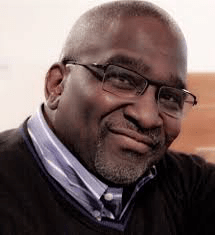STARTING OVER FROM SCRATCH
1 There was a man of the Pharisee sect, Nicodemus, a prominent leader among the Jews. 2 Late one night he visited Jesus and said, “Rabbi, we all know you’re a teacher straight from God. No one could do all the God–pointing, God–revealing acts you do if God weren’t in on it.” 3 Jesus said, “You’re absolutely right. Take it from me: Unless a person is born from above, it’s not possible to see what I’m pointing to — to God’s kingdom.” 4 “How can anyone,” said Nicodemus, “be born who has already been born and grown up? You can’t re–enter your mother’s womb and be born again. What are you saying with this ‘born–from–above’ talk?” 5 Jesus said, “You’re not listening. Let me say it again. Unless a person submits to this original creation — the ‘wind—hovering—over—the—water’ creation, the invisible moving the visible, a baptism into a new life — it’s not possible to enter God’s kingdom. 6 When you look at a baby, it’s just that: a body you can look at and touch. But the person who takes shape within is formed by something you can’t see and touch — the Spirit — and becomes a living spirit. — John 3:1-6, MSG
I can remember when I was writing papers for graduate school in the middle to late 80’s. I did not own a personal computer. Few people did, for that matter. Like most other postgraduate students at Colgate Divinity School, I wrote out my papers in long-hand, then I either secured someone to type it for me or found myself hunting and pecking on an old IMB typewriter. When I had someone proficient at typing helping me, my papers would be impeccable. Yet, when I wrote and typed the paper myself, it was a whole different matter. In sharp contrast to the more professional typists’ papers, my typewritten papers were dotted with blotches of white-out. It was so bad at times that I would throw away the typewritten page and start from scratch. I found that to be time-consuming, frustrating, and a blow to my academic ego.
Thankfully, later, one of my friends and female peers took mercy on me. She said that she had grown tired of watching me hunting and pecking, as well as turning in less than stellar-looking papers, even though reasonably thought-out. I thought she intended to type my papers from that point on — at least that was what I was hoping. It would have been easier for me, but not better. She taught me how to use her typewriter, which had a self-correcting feature. When I made a mistake with her typewriter, I didn’t have to start over from scratch. I only had to backtrack, correct the error, and move on to complete the paper.
Nicodemus, whose Greek name means, loosely translated, “Victorious People,” had been stumped by his desire for a fresher, closer relationship with the Lord. The irony is that he was a Pharisee, one who was well-schooled in spiritual matters. However, it seems it’s one thing to know about God, but it’s another to know God in intimate, passionate, and transformative ways. Nicodemus must have encountered Jesus earlier. Perhaps the encounter was at a distance or in passing. Even in such a brief contact, he must have sensed that there was something different, more life-giving, life-altering in the way Jesus spoke and acted. Nicodemus got, through Jesus, a whiff of what a dynamic relationship can truly be. He decided he wanted what Jesus had: a rich, responsive, authentic, and close relationship with the God of Creation and Covenant.
Sometimes, I wonder when many of members of EBC will yearn to be closer to and changed daily by God. EBC is comprised of very smart and successful people. I’m thankful to God to be associated with people like you, who push me to know, do, and grow more. Still, I question what it will take for some of you to shift from pursuing success to pursuing significance. That’s something only God knows.
Meanwhile, if you decide – here and now – you want a richer, deeper, and more responsive relationship with the Lord, then he shows us how to achieve that through what Nicodemus says and does. He models how you and I can mature in a difference-making manner. He shows us how we can make the shift from a dead relationship to a dynamic one with the Lord.
To do so, we may have to toss out much of what traditional Christianity has taught, even in the Black Church. We must begin our journey with Jesus anew towards maturity and more using these helpful hints:
- Ask the Lord to awaken in you a greater hunger for Him. (Implied by Vs.1)
- Come closer to Christ, who is waiting on you in times of stillness and silence. (Vs. 2a)
- Humble yourself before Him. (Vs. 2b-c)
- Meditate on the words of Christ, but, more importantly, on the meaning behind the words. (Vss. 3-6)
- Be willing to put in your part of the work of transformation. (Vss. 7-21) [NOTE: Of course, Christ has the more significant role in the process of transformation].
That’s pretty much it! At least, it’s a good start. You must begin again – but from right where you are – with a renewed head, heart, and hands. Never forget that you have a pastor, people, and a High Priest who are praying for you when things become more of a struggle and/or stale in your pursuit of more significance through our Lord and Savior Jesus Christ.


